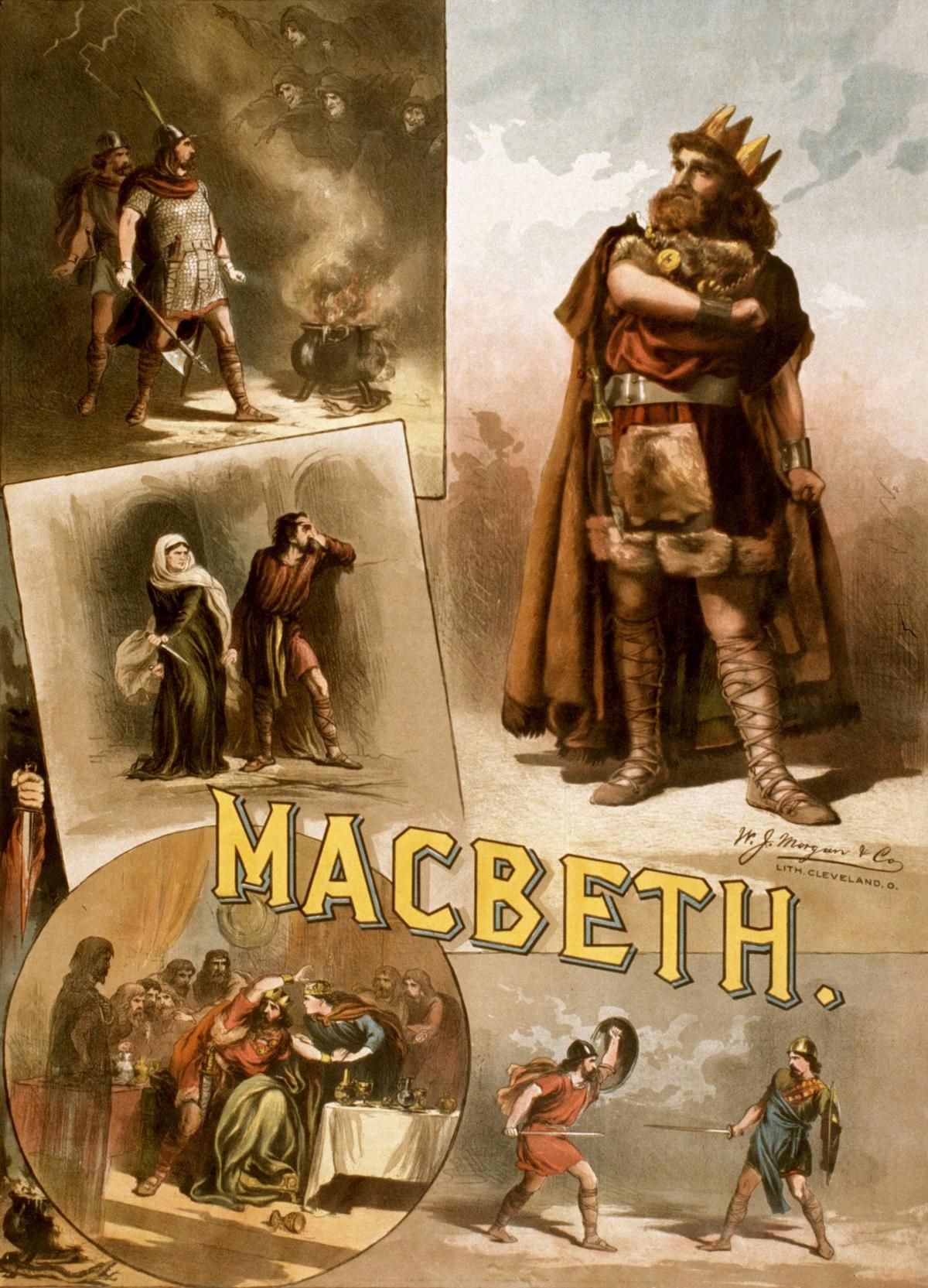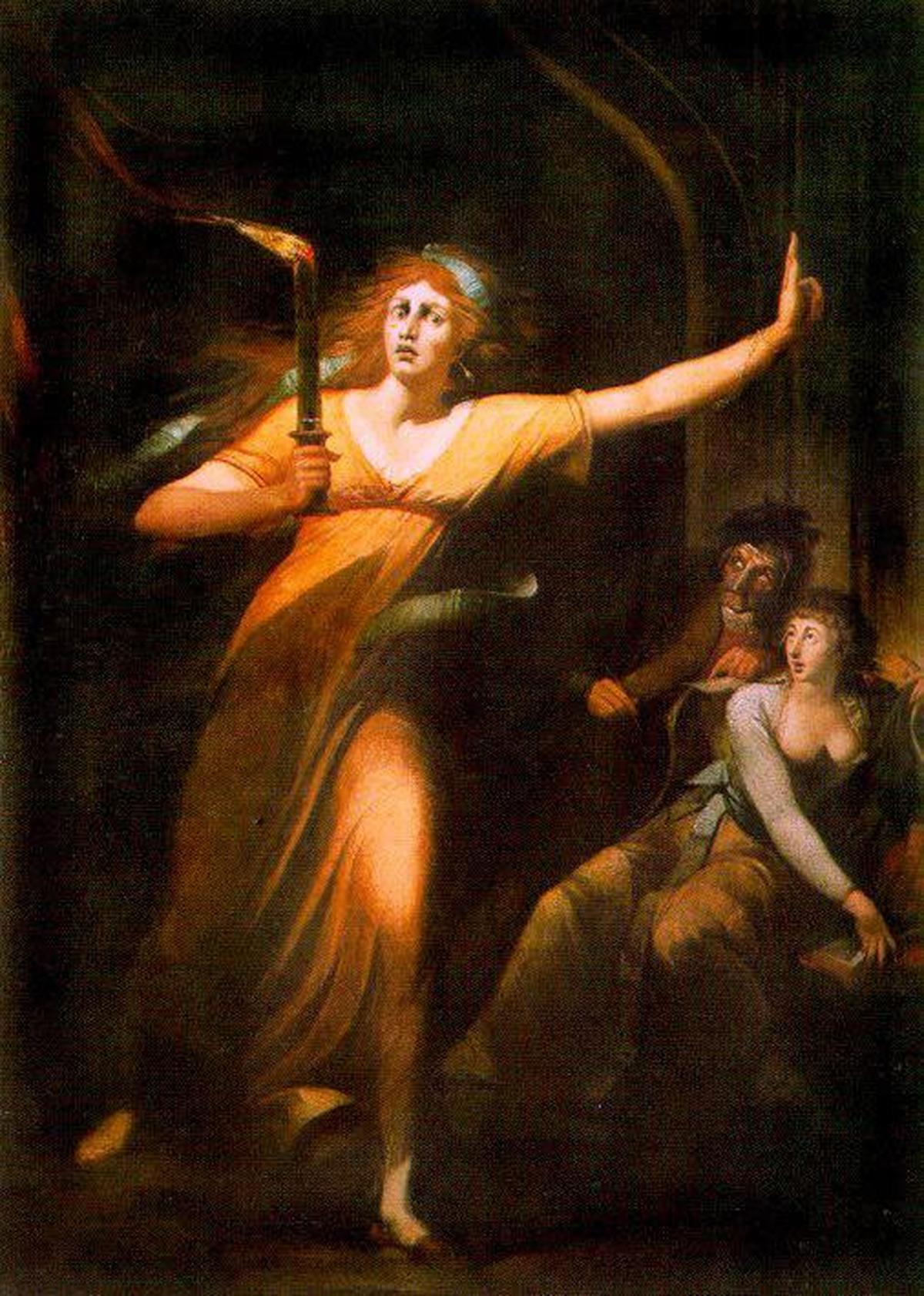Youngsters from Heiderveld Secondary College, South Africa portraying the three witches in Macbeth
| Photograph Credit score: AKiba2x0 1/ wikimedia commons
Whenever you hear the road “he who shouldn’t be named”… what involves thoughts? For many of us, this line refers to Voldemort, the heinous villain of J.Ok. Rowling’s “Harry Potter” collection. Though Voldemort might need wreaked havoc on Hogwarts and the wizarding world, there’s one other title that has been (virtually) terrorising storytellers—or let’s simply say theatre-goers and performers—equally for greater than 4 centuries, and that title is… (brace your self) Macbeth.
“Why?”
Properly, I’m glad you requested.
The legend behind the cursed play

A poster of Macbeth’s 1884 manufacturing
| Photograph Credit score:
WIKIMEDIA Commons
The superstition surrounding the play dictates that neither the play’s title nor any quote from the textual content have to be spoken in a theatre exterior of rehearsals or the efficiency itself. Refusal to stick to this taboo is assumed to ask bother, dangerous luck, and even catastrophe to the insurgent or the group placing collectively the bard’s play.
The legend has been feared for thus lengthy that it has change into embedded within the English public’s psyche. One piece of proof of that is the truth that there isn’t any signal for the phrase ‘Macbeth’ in British Signal Language.
To keep away from any dicey conditions, individuals in theatrical circles have provide you with many euphemisms to discuss with the play, equivalent to “The Bard’s Play” or “The Scottish Play.”
The king, the context & the curse
Witch trials and the persecution of suspected witches had been rampant throughout Europe in the course of the sixteenth and Seventeenth centuries. When King James I ascended to the throne of England in 1603, his disdain for witchcraft was clear. He even labelled it “excessive treason towards God,” justifying all types of torture and brutality towards these accused. His obsession with the darkish arts was mentioned to be impressed by the execution of his mom, Mary, Queen of Scots. This fixation intensified after he encountered a brutal storm at sea whereas he was the king of Scotland. Satisfied witches had been accountable, James launched a witch-hunt upon his return dwelling and shortly penned Daemonologie, a e-book outlining his plans to eradicate witchcraft.
When English playwright William Shakespeare staged Macbeth round 1606, that includes three “bizarre sisters” chanting convincing spells, it struck worry into the general public. Rumours swirled {that a} coven of witches had cursed the play. Historians later debunked the story that the actor set to play Woman Macbeth (within the first manufacturing of the Shakespearean tragedy) died out of the blue earlier than opening night time, revealing it as a fable created by the nineteenth and Twentieth-century cartoonist and critic Max Beerbohm. But, by then, the legend had already cemented its place in theatrical lore.
A tainted legacy

“The sleepwalking Woman Macbeth” by Johann Heinrich Füssli
| Photograph Credit score:
The Yorck Mission (2002)/wikimedia commons
The play hasn’t had a lot luck since. A lot of its productions have been tainted by accidents, together with actors falling off set, mysterious deaths, and even riots, notably in 1721 and 1772. A very macabre incident occurred in a Seventeenth-century Amsterdam manufacturing when the actor taking part in King Duncan was allegedly killed in entrance of a dwell viewers, as an actual dagger was used as a substitute of a stage prop in the course of the stabbing scene.
However don’t these sorts of accidents occur with different performs too? Macbeth, with its inventory of sophisticated scenes, together with six homicide scenes and tumultuous storm sequences, is a dangerous gambit, curse or no curse. Its manufacturing prices are so excessive that British historian Martin Harrison famous in his 1998 e-book, The Language of Theatre, that it might bankrupt a theatre.
Nevertheless it’s wiser to not take any probabilities
So in case you utter the title of ‘The Scottish Play’ within the theatre, right here’s a easy antidote. Exit the theatre, spin round thrice, spit, curse after which knock on the theatre door and ask to be let again in.





